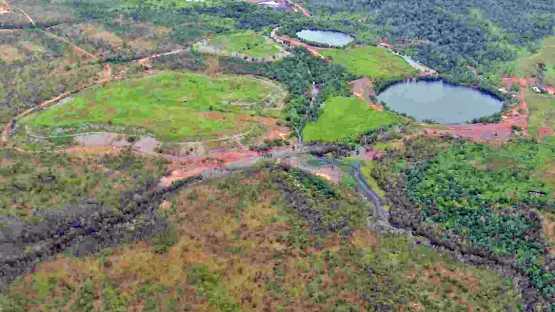Putting nuclear facilities safely and securely to rest once they have reached the end of their useful lives and making their sites available for future reuse require careful planning and implementation. The IAEA offers Member States a wide range of services related to decommissioning and environmental remediation, from legal, regulatory and technical advice through capacity building and training to maintenance of networks for information exchange. The services also assist States Parties to the Joint Convention on the Safety of Spent Fuel Management and on the Safety of Radioactive Waste Management, which requires Parties to report on safety for remediation and decommissioning.
The International Conference on Advancing the Global Implementation of Decommissioning and Environmental Remediation Programmes hosted in Madrid, Spain this week covers the various IAEA support services for Member States. The latest issue of the IAEA Bulletin also deals with this topic. Please see the full edition here.
This article provides an overview of these services.
The ARTEMIS review service
The IAEA has developed an integrated review service for radioactive waste and spent fuel management, decommissioning and environmental remediation, referred to as ARTEMIS. It was launched in 2014, and is intended for facility operators and other implementing organizations responsible for radioactive waste management, decommissioning of nuclear facilities and the remediation of sites contaminated with radioactive materials.
This service may be used by regulators, government agencies and national policy makers and may cover existing or planned national or institutional policy and regulation frameworks as well as associated waste management programmes, projects or facilities. The reviews may also involve detailed assessment and technical advice on the implementation of specific decommissioning or environmental remediation programmes.
Workshops and training
The planning and implementation of decommissioning and environmental remediation programmes depend on the availability of a sufficient number of suitably qualified and experienced professionals both at implementing and regulatory organizations.
The IAEA runs training courses, workshops and expert missions and offers fellowships through its Technical Cooperation Programme to assist in developing technical knowledge and expertise. Specialist online learning courses complement face-to-face training.
International Decommissioning Network
The International Decommissioning Network (IDN) is a forum for experts to enhance cooperation and knowledge sharing related to decommissioning activities. The network is concerned with the decommissioning of all types of nuclear facilities, including power plants, fuel cycle facilities, research reactors, former research sites and other facilities in which radionuclides are utilized for industrial, medical or research purposes.
The Network organizes several collaborative activities, including an annual forum for participants.
Network of Environmental Management and Remediation (ENVIRONET)
ENVIRONET promotes and facilitates collaboration between less experienced and more experienced countries and organizations to share knowledge in the implementation of environmental remediation projects.
The network offers a broad and diversified range of training and demonstration activities with a regional or thematic focus providing hands-on, user-oriented experience and disseminating proven technologies.
Connecting the Network of Networks for Enhanced Communication and Training (CONNECT)
IAEA CONNECT is a web-based platform available to members of IAEA professional networks and communities of practice with the objective to facilitate collaboration and sharing of information and experience between network participants, both within or among several networks.
Eleven networks are hosted on CONNECT, including IDN and ENVIRONET, as well as networks dealing with waste disposal, spent fuel management and nuclear knowledge management, among others.
Modelling and Data for Radiological Impact Assessments Programme (MODARIA)
The aim of the MODARIA Programme is to improve capabilities in the field of environmental radiation dose assessment through the use of improved data, model testing and comparison, reaching consensus on modelling approaches and parameter values, developing improved methods and exchanging information.
The results of radiological assessments are used, for example, in the evaluation of the radiological relevance of routine and accidental releases of radionuclides, to support decision making in remediation work and for the performance assessment of radioactive waste disposals.
The Programme has ten working groups that focus on a range of interrelated issues, such as routine discharges of radionuclides into the environment, the migration of radionuclides in contaminated rural and urban environments, the dispersion of radionuclides in marine systems and the remediation of land contaminated during nuclear accidents or as a result of poorly regulated activities in the past.
Other collaborative efforts
In 2012, the IAEA formed the Coordination Group for Uranium Legacy Sites (CGULS) to provide technical coordination for national and multilateral activities in the remediation of uranium legacy sites, primarily in Central Asia.
Another service, the International Working Forum on Regulatory Supervision of Legacy Sites (RSLS), was established in 2010 to promote effective and efficient regulatory supervision of legacy sites, consistent with IAEA Safety Standards and international good practices. It offers participants an opportunity to gain hands-on experience through international workshops that focus on specific sites. This service builds technical competence, strengthens regulatory capacity for remediation and helps devise effective national strategies to enhance national decision-making processes.
Through the International Project on Managing the Decommissioning and Remediation of Damaged Nuclear Facilities (DAROD), which was launched in January 2015, experts can learn more about and benefit from the experience derived from decommissioning and remediating nuclear facilities damaged by severe accidents. DAROD addresses regulatory, technological and planning aspects of decommissioning and remediation.
DAROD is one of the initiatives undertaken by the IAEA under the IAEA Action Plan on Nuclear Safety adopted in the wake of the 2011 accident at the Fukushima Daiichi nuclear power plant.








